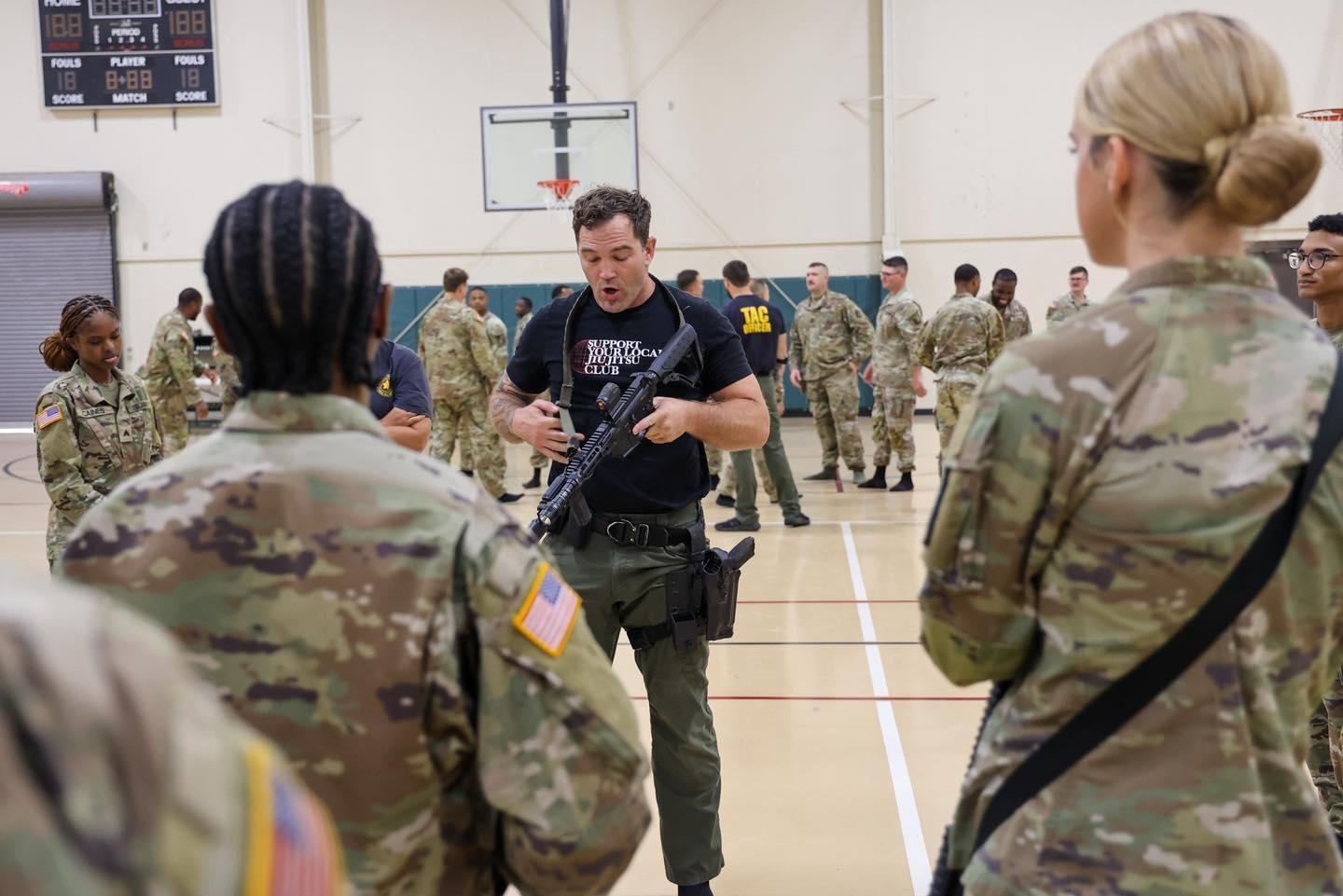Mississippi Gov. Tate Reeves announced he’s extending the deployment of roughly 200 National Guard members to Washington, D.C. until November 30.
Mississippi extends National Guard deployment; activists call for end to 'political theater'


Mississippi Gov. Tate Reeves announced he’s extending the deployment of roughly 200 National Guard members to Washington, D.C. until November 30.

Elise Gregg
Mississippi extends National Guard deployment; activists call for end to 'political theater'
In a Wednesday post on X, the governor said President Donald Trump’s “efforts to clean up Washington are working” and that Mississippi troops have been instrumental in that. The Mississippi National Guard said in a press release Friday that 65 guard members had returned to Mississippi, with 70 others swapping out to head to D.C.
On Thursday, advocates from five states and D.C. banded together for a virtual press conference, calling on state leaders to bring their National Guard members home.
“Stop intimidating our communities. Stop breaking the law,” said Keya Chatterjee, executive director of Free DC. “Stop wasting our money — the people’s money — by having these guard members here.”
Free DC, which hosted the conference, is an organization dedicated to protecting home rule in Washington, D.C. They were joined by advocates from other states with troops in the capital, including Mississippi and Louisiana.
“We all feel very united in saying that our public dollars should be spent home in our states, going to material things that our folks need, as opposed to funding what we feel is really no more than political theater,” said Lea Campbell, founder and principal organizer for Mississippi Rising Coalition.
Free DC is asking people to write to their governors to call back the troops. Its members are also speaking with Congress to ask its members to pass HR 5093 and S. 2688, giving D.C. control over its own National Guard.
“This is an attack on D.C., but it’s an attack on all of our communities,” said Chatterjee.
In an interview, Campbell said many of these states are facing a lot of the same issues and that public dollars would be best invested in those state problems — not Washington.
“Rural hospitals are closing in Mississippi. Schools are underfunded in Mississippi. Food insecurity in Mississippi is at one of the highest rates in the nation,” Campbell said.
In her advocacy work with Mississippi Rising Coalition, she sees how hard these problems hit Mississippians every day.
Previous estimates from a 2020 D.C. deployment put the cost of troops in the capital at up to $2.6 million per day, or $530 daily per guard member.
“$530 to a single family in Mississippi could mean the difference between making rent one month or not making rent, or being able to feed their family,” Campbell said.
That 2020 deployment was paid by the federal government, and estimates for the current deployment are a little lower, at nearly $1 million per day.
However, money is just part of the picture. Some activists highlighted the costs of not having guard members at home in case of an emergency.
“Send our troops back here, where they’re needed, and can stand at the ready in case of a hurricane — that we know can happen at any time,” said Pastor Gregory Manning of Louisiana at the press conference.
He called the deployment of Louisiana guard members an “irresponsible” move by Louisiana Gov. Jeff Landry.
But, as a New Orleans resident, Manning emphasized having troops at home for the right reasons.
“Our crime level is down more than at any other time here in the city of New Orleans,” said Manning. “We don’t need troops to stand guard in the French Quarter, so that tourists are frightened and tourists don’t want to come here.”
Earlier this month, President Trump floated the idea of sending the National Guard to New Orleans, with Landry saying they’d be welcome.
In response, hundreds of protestors gathered in New Orleansto rally against a deployment.